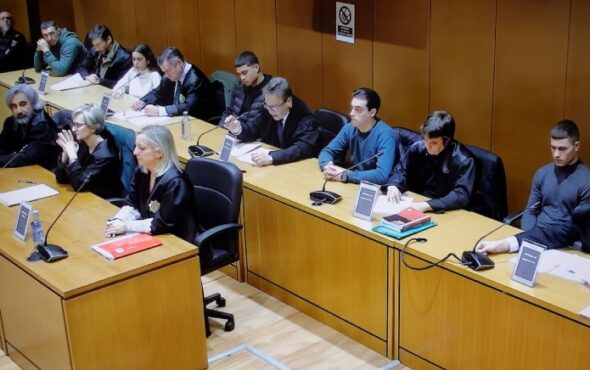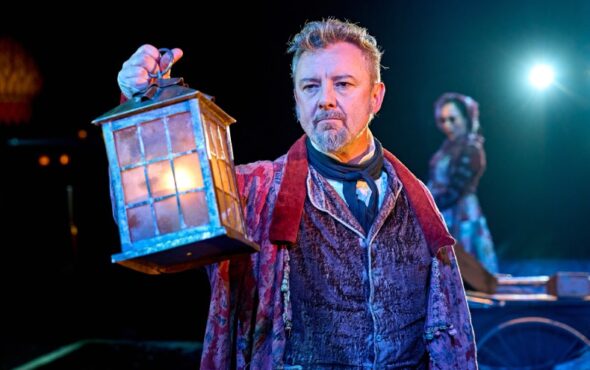
With LGBTQ+ rights in the spotlight, Hungarians go to the polls on Sunday for a closely contested parliamentary election and a parallel referendum on a law that limits schools’ teaching about homosexuality and transgender issues.
Prime Minister Victor Orban’s right-wing Fidesz party faces a united opposition for the first time since he came to power in a 2010 election landslide, and polls suggest his opponents are within striking distance of unseating his party.
LGBTQ+ groups are hoping for a change of government after repeated rollbacks on the rights of gay and trans people under Fidesz.
Here are some details about Sunday’s voting:
What is Orban’s stance on LGBTQ+ rights?
Orban’s government has passed numerous laws restricting LGBTQ+ rights in recent years, with a strong parliamentary majority allowing it to push through contentious bills with relative ease.
In May 2020, parliament voted to bar trans people from legally changing their sex on their identity documents.
Months later, Hungary changed the definition of family in its constitution to effectively prevent same-sex couples from adopting children.
Last June, the government prompted an outcry from rights groups after it passed legislation that bans the dissemination of content deemed to promote “homosexuality or gender change” to under-18s or in schools – ostensibly as a measure to prevent child abuse.
Despite such legislative measures, Orban has said he is a defender of LGBTQ+ rights, and had been a “freedom fighter” against the communist regime that ruled the country until 1989 and opposed gay rights.
But, in recent years, he has increasingly cast himself as a defender of “traditional Hungarian values” as he looks to drum up conservative support.
“Orban has for years been looking for issues that can be divisive enough that they can use it to be a vote winner,” said Andras Toth-Czifra, political analyst at the Center for European Policy Analysis, a think-tank in Washington, D.C..
What is the opposition’s stance on LGBTQ+ rights?
Six opposition parties have banded together to form the group United for Hungary in an effort to overturn Fidesz’s two-thirds majority in parliament and form a government.
Polls suggest the election will be a tight race, with Fidesz maintaining a narrow lead over United for Hungary.
The alliance brings together liberals, greens, conservatives as well as radical nationalist party Jobbik. Its candidate for prime minister is Peter Marki-Zay, a conservative mayor who is independent of any party.
United for Hungary’s manifesto says no one should suffer harm or discrimination due to their sexual orientation or gender identity, and Marki-Zay has said the alliance would legalise same-sex marriage if elected.
While emphasising that he is a Roman Catholic, he has said Hungary should not discriminate and should offer its citizens equal rights.
Hungary has never allowed gay marriage but recognises same-sex civil unions.
United for Hungary would also take immediate steps to scrap the law banning the dissemination of gay and trans “propaganda” among children, Marki-Zay has been quoted as saying.
What is the ‘anti-LGBTQ+’ referendum about?
Hungarians will also vote in a referendum on whether they support the LGBTQ+ content law, which set Orban on a collision course with the EU’s executive Commission, which has launched legal action against it and threatened to withold funding.
The referendum, which was called by Orban, is widely seen as a riposte to the European Union.
With the legislation already passed, the result will not have any legal significance, but the government hopes to show the measures have popular support, analysts and activists said.
Human rights campaigners have called on voters to spoil their ballots, in an effort to ensure the referendum fails to reach the 50% voter participation required to be deemed valid.
What’s likely to be the upshot of the election?
Another win for Orban’s party could lead to further restrictions on the rights and freedoms of LGBTQ+ people in Hungary, analysts and activists said.
Rights groups hope that a victory for the opposition could offer a change in direction – though there are questions over how far the alliance would go to support LGBTQ+ rights, and whether the fragile coalition will hold together.
“Even if the opposition wins, there’s a lot of work to do,” said Katrin Hugendubel, advocacy director at ILGA Europe, which lobbies for LGBTQ+ rights.
“But there is a window of opportunity for political advocacy on actually correcting the path to a better protection of LGBTI rights.”
Reporting by Joanna Gill; Editing by Sonia Elks.
GAY TIMES and Openly/Thomson Reuters Foundation are working together to deliver leading LGBTQ+ news to a global audience.



